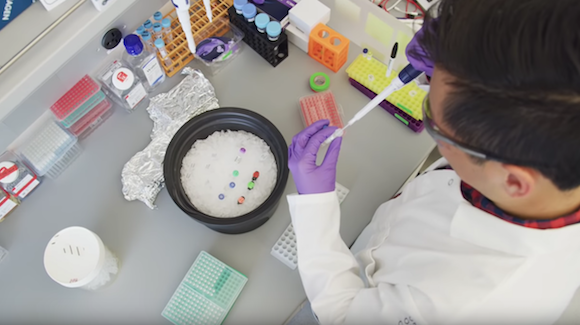Phenylalanine-restricted diet may benefit adults with PKU
Reuters Health • The Doctor's Channel Daily Newscast
Early diagnosis and treatment of PKU is associated with excellent outcomes, but in its untreated form, severe intellectual disabilities and behavioral problems occur. Such is the case for adults with the disorder who were born in the pre-PKU screening era, according to the report in the Journal of Neurology, Neurosurgery, and Psychiatry for June.
Anecdotal reports have suggested that a phenylalanine-restricted diet could improve behavior in adults with PKU. To determine if this is true, Dr. G. Murphy, from the University of Kent, and colleagues conducted a randomized, placebo-controlled cross-over trial of a phenylalanine-restricted diet in 34 adults with late-diagnosed PKU and severe challenging behavior.
Just 17 patients finished the 60-week study, the report indicates. Twenty-two patients were exposed to both the intervention and control diets.
Adherence to the phenylalanine-restricted diet reduced blood phenylalanine levels from 1570 to 553 micromol/L, on average.
Compared to the control diet, the intervention diet had no significant effect on behavior as assessed with the Aberrant Behavior Checklist, Vineland Adaptive Behavior Scales, behavior diaries, or video analysis. However, caregivers were more likely to report positive behaviors while the subjects were on the phenylalanine-restricted diet rather than the control diet: 76% vs. 54% (p < 0.001).
“The results of this double-blind placebo-controlled randomized trial of phenylalanine-restricted diet in a group of adults with late diagnosed PKU and severe intellectual disabilities and challenging behavior suggest that this intervention should be offered to these individuals,” the authors conclude.
Reference:
J Neurol Neurosurg Psychiatry 2009;80:631-635.






